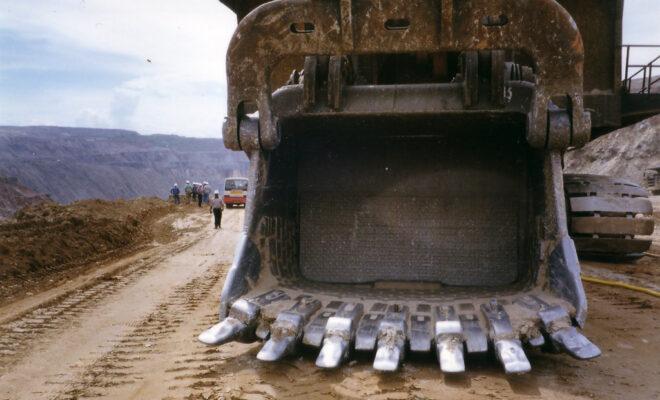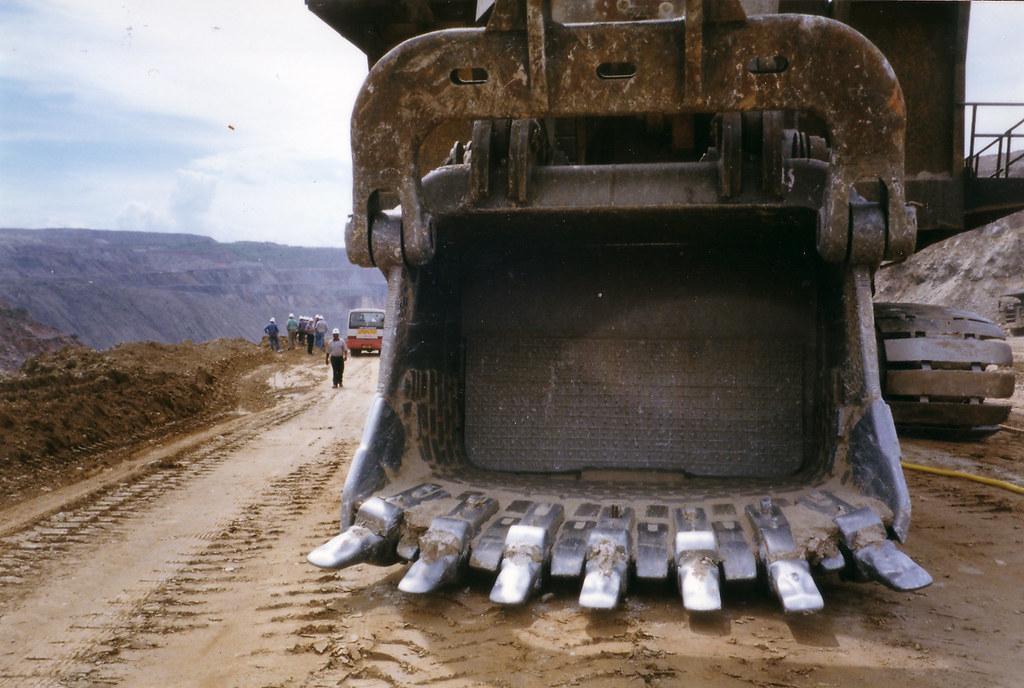Received wisdom says the state should stay out of the resource sector

The data suggests otherwise.

At a mine in Zambia. Credit: mm-j.
When it comes to resource extraction, there’s conventional wisdom among most economists and development agencies: that private enterprises are more efficient and capable than the state. That the exploitation of natural resources generates more wealth when managed by the private sector.
As such, the likes of the IMF and the World Bank promote foreign direct investment in African states. Meanwhile, many analysts warn against a resurgence of so-called resource nationalism. They suggest that state intervention is often motivated by populist considerations and raise fears that past mistakes will be repeated with dire socio-economic consequences. A recent FT opinion piece, for example, claimed that increasing governmental intervention in Zambia’s mining sector will “place the whole economy at risk”.
For some time, however, various governments in Africa have increasingly questioned this premise. They and others have disparaged what they see as the siphoning off of natural resources to international investors.
Such critics also highlight the unsavoury business practices often perpetrated by multinational corporations. They criticise foreign investors for taking advantage of regressive tax codes and repatriating profits. Companies such as Glencore or Shell are frequently accused of controversial mining agreements, tax evasion and corruption. The UN has referred to private sector resource deals in the Democratic Republic of the Congo (DRC) as a “nightmare”.
In response to such concerns, some African governments have enacted measures to improve regulatory oversight, insist national firms hold some equity in foreign-led projects or increase corporate and export tax rates. In some exceptional cases, officials have even cancelled contracts or nationalised projects to enhance their control over key commodities.
In Tanzania, for example, President John Magufuli has enforced stricter regulatory laws and fined international mining companies for unpaid taxes. Under a revised mining code, the DRC has recently imposed higher royalties on multinational mining firms.
Are these governments taking the wrong route? Should countries with resources really limit state participation in their extractive industries?
What does the empirical evidence show?
To address these questions, we assessed the effect of resource ownership on local socio-economic outcomes. Using novel data on control rights over gold, copper and diamond production within African states south of the Sahara, we analysed the well-being of individuals living close to internationally-controlled mines as compared to those living in the proximity of domestically-controlled mining projects.
Our geospatial econometric analysis revealed that state-controlled extraction is associated with better access to clean water and medical services, higher educational attainment, greater food security and more nutritional diversity. It showed that domestic mining projects increase individuals’ perceived living conditions.
In contrast, the research found that internationally controlled resource extraction seems to increase the vulnerability of local populations by, for example, aggravating food insecurity.
Why the difference?
There are various reasons why state-led mining might be more capable of enhancing local living conditions than private-led projects.
To begin with, private companies’ singular goal is to maximise profit. By contrast, state-owned enterprises commonly pursue non-commercial goals too such as the creation of local jobs.
This was reflected in the data. We gathered systematic evidence that state-led mining projects generate more local employment opportunities. State-owned firms tend to hire more indigenous workers and favour practices that lead to more employment. Multinationals, on the other hand, are relatively more likely to import large parts of their workforce from abroad. This might be more efficient in purely economic terms but does less to help secure livelihoods within mining communities.
State and private companies also differ in how they relate to local economies. Foreign firms are more likely to rely on an international network of skills and technology. This means they have few incentives to invest in local capacity building. They often operate in an enclave and are poorly integrated into local economies.
By contrast, domestic mining firms are typically compelled to build up local expertise as they cannot count on an international reservoir of technology and skilled labour. They often have to establish technical schools, research and training centres and scholarship programmes so they can recruit staff. We found that domestic companies are more likely to promote educational attainment. In addition, state-owned mining enterprises seem more likely to generate economic linkages to non-resource sectors through local content policies that encourage the procurement of good and services from other domestic companies.
What are the policy implications?
The arguments and evidence presented above should not be viewed as a blanket call for greater national ownership over mining assets. Our research found that state-run resource companies are more likely to improve socio-economic wellbeing than private foreign firms on average, but particularly when there is good governance, secure property rights and low corruption.
Rather, the main conclusion of our research is that we should avoid overstating the effectiveness of private sector extraction and that we should question the assumption that more state control necessarily hinders development.
Realistically, both state-run and private sector extraction will continue. And both can be improved. African governments can enhance transparency and accountability within state-led resource extraction. At the same time, they can make greater efforts to regulate the activities of multinationals.
Governments can reform overly lax fiscal regimes that grant generous tax exemptions to international enterprises. They can review unfavourable production sharing agreements, make sure firms comply with national labour codes, and more closely implement initiatives such as the Extractive Industry Transparency Initiative. When exploration licenses are granted, companies’ environmental, social and governance (ESG) policies can be taken more seriously. And, finally, governments could craft and implement well-designed local content legislation through consultation with resource companies, NGOs, mining communities and local businesses.






Hi Tim.
I agree in general, however, a lot depends on how the SMC is managed by the state. In 2011 RMG (Stockholm) did a study on “best practice” for successful SMCs (like “arms length” ownership) for the ANC’s SIMS (State Intervention in the Mining Sector) report, which I could share.
The 2nd nuance is that its not merely a choice of state v/s private, but which private – domestic capital or foreign capital (the latter are the main problem in terms of enclave development and IFFs) and, if foreign capital, based in a tax haven (secrecy jurisdiction) or not? The worst “plunderers” are FDI from a tax haven and/or secrecy jurisdiction (FRG falls under the latter).
There’s a -ve crit of your piece on the GOXI site https://goxi.org/blog/do-state-owned-mining-enterprises-really-offer-more-long-term-benefit-private-sector-companies. Standard free-market cant.
Best, Paul